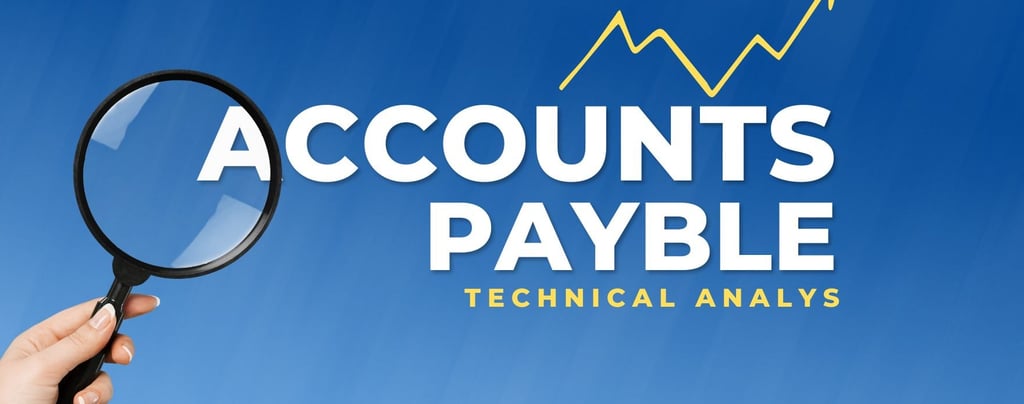
Accounts Payable Interview Tips
Prepare for accounts payable interviews with common questions and strong sample answers for success.
Accounts Payable Insights
Accounts Payable (AP) refers to the amount of money a company owes to its vendors or suppliers for goods and services received but not yet paid for. It is considered a short-term liability on the company’s balance sheet and represents obligations that must be settled within a certain period (typically 30 to 90 days).
✅ Example of Accounts Payable:
Let’s say XYZ Corporation purchases office supplies worth $5,000 from a vendor on credit terms of Net 30 (meaning payment is due in 30 days).
The vendor delivers the supplies and sends an invoice.
XYZ Corporation records this $5,000 as Accounts Payable.
The liability remains on the books until XYZ pays the vendor.
🧾 Journal Entry (at the time of purchase):
Debit: Office Supplies (Expense) – $5,000
Credit: Accounts Payable – $5,000
Once the company pays the vendor, the AP balance is reduced accordingly.


🔹 Basic & Technical Questions
1. What is Accounts Payable?
Answer:
Accounts Payable represents the money a company owes to suppliers for goods or services purchased on credit. It's a current liability recorded on the balance sheet.
2. What is a three-way match?
Answer:
A three-way match compares the purchase order, receiving report, and vendor invoice. Payment is made only when all three documents match.
3. What’s the difference between Accounts Payable and Accounts Receivable?
Answer:
AP refers to money the company owes (liabilities), while AR refers to money the company expects to receive from customers (assets).
4. How do you prevent duplicate payments?
Answer:
By validating invoice numbers, using system controls, flagging duplicates, checking vendor records, and reconciling statements regularly.
5. What is a debit balance in AP?
Answer:
A debit balance usually indicates overpayment to a vendor, return of goods, or an accounting error that must be investigated.
🔹 Process & Control Questions
6. How do you manage vendor reconciliations?
Answer:
I compare vendor statements with the company’s AP ledger, resolve discrepancies, verify unpaid invoices, and ensure accurate balance reporting.
7. What are some internal controls in AP?
Answer:
Segregation of duties, invoice approval workflows, purchase order matching, system audits, and authorization limits for payments.
8. How do you handle payment discounts?
Answer:
I prioritize vendors offering discounts (e.g., 2/10 Net 30), process them early, and ensure timely approvals to maximize cost savings.
9. What are the steps in the month-end closing process for AP?
Answer:
Validate all invoices are posted
Reconcile AP subledger with the GL
Accrue unpaid liabilities
Verify cut-off dates
Generate reports
10. How do you handle vendor disputes?
Answer:
I investigate by checking documentation, communicate calmly with the vendor, correct any issues, and document resolutions thoroughly.
🔹 Software & Systems
11. What AP systems or ERPs have you worked with?
Answer:
I have used SAP, Oracle, QuickBooks, and NetSuite. I'm proficient in invoice scanning, approval workflows, and report generation.
12. How do automated AP systems help?
Answer:
They reduce manual entry, increase accuracy, streamline approvals, flag duplicates, and improve compliance and audit readiness.
🔹 Scenario-Based & Behavioral
13. Describe a time you found an error in an invoice.
Answer:
In one case, I spotted a duplicate charge on an invoice. I flagged it, confirmed with the vendor, and prevented a $10,000 overpayment. It saved money and strengthened controls.
14. What would you do if a supplier refuses to deliver due to delayed payment?
Answer:
I’d investigate the payment issue, communicate transparently with the vendor, expedite payment if justified, and suggest a resolution plan.
15. How do you prioritize payments when funds are limited?
Answer:
I prioritize based on due dates, early payment discounts, strategic vendor relationships, and business-critical supplies or services.
🔹 Advanced Conceptual
16. What is an AP Aging Report?
Answer:
It’s a report that categorizes AP balances by due dates (e.g., current, 30, 60, 90+ days). It helps manage cash flow and monitor overdue invoices.
17. How does AP affect cash flow?
Answer:
Delayed payments conserve cash, while early payments reduce liabilities but can strain cash. Efficient AP improves liquidity planning.
18. What is accrual in AP?
Answer:
Accruals are recorded when an expense is incurred but not yet billed. It ensures expenses are matched with the right accounting period.
19. What is 2/10 Net 30?
Answer:
It means the buyer gets a 2% discount if payment is made within 10 days; otherwise, full payment is due in 30 days.
20. How do you maintain accuracy and avoid fraud in AP?
Answer:
By following SOPs, using approval hierarchies, verifying documentation, implementing system controls, and rotating duties for segregation.
Accounts Payable Interview Prep
Guidance
Your path to studying in the USA.
cONTACT
Support
bee@usadmission.net
LibGoal© 2024. All rights reserved.
